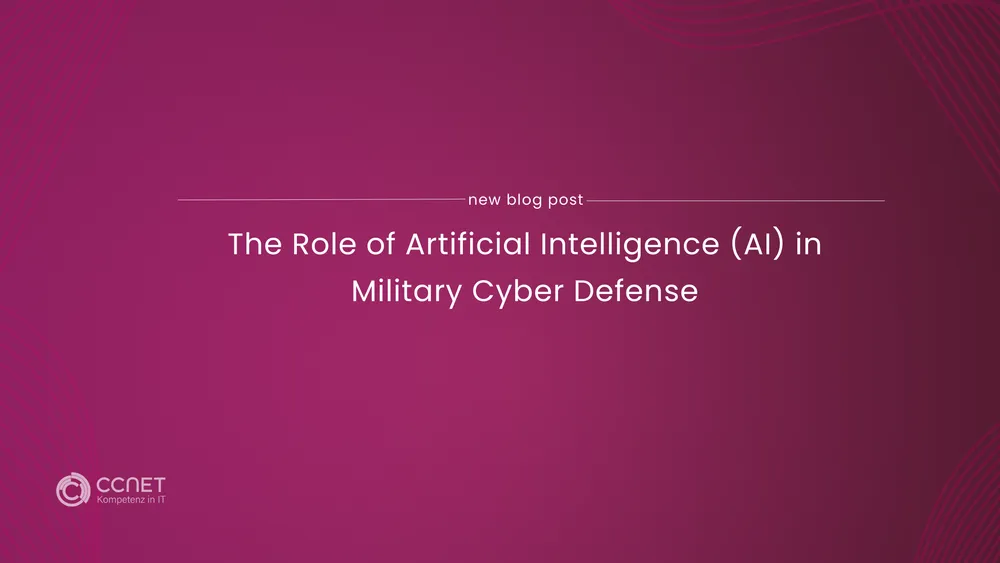
CCNet
Feb 3, 2025 • 2 min read

Strategic priority of military cyber defense in contemporary conflicts
While cyberspace was once viewed as an emerging domain, it is now a fully-fledged battlefield where conflicts occur daily. The threats in this area are not only numerous but also increasingly complex and destructive. This requires states to continuously adapt their defense strategies to ensure their digital sovereignty and the security of critical infrastructures.
The Evolution of Cyberspace as a Domain of Warfare
Cyberspace has evolved from a purely communicative platform into a central domain of modern warfare. In the past, military operations were primarily conducted in physical domains such as land, sea, air, and space. Today, cyberspace is not only another battlefield but also a domain that influences and permeates all other domains.
Modern military operations are almost unimaginable without the use of cyber technologies. The dependence on computer networks for communication, control, and surveillance functions has significantly increased the risk of cyber-attacks. Attackers can cause considerable damage through cyber operations by disrupting critical military systems, stealing sensitive information, or taking control of strategically important infrastructures. These threats make it essential for states to possess robust and adaptable cyber defense capabilities.
The Strategic Necessity of Robust Cyber Defense
The threat of cyber-attacks is of great significance not only on a technical level but also on a strategic level. Military cyber defense is therefore not just a technical challenge but a strategic necessity. States must ensure that their cyber defense capabilities are not only state-of-the-art but also capable of adapting to new threats and challenges.
A central aspect of cyber defense is the ability to detect and respond to threats early. This requires constant monitoring of the cyber threat landscape and the development of strategies to respond appropriately to new threats. Furthermore, military organizations must be capable of defending against cyber-attacks and quickly restoring their systems to minimize the impact of such attacks.
Challenges and Future Developments
Although cyberspace is now recognized as a distinct domain of warfare, many states still face the challenge of developing and optimizing their cyber defense capabilities. This is partly because cyberspace is a highly dynamic and elusive domain. Threats constantly evolve, and it is often difficult to keep pace with the latest developments.
Another important factor is collaboration between various states and organizations. Since cyberspace has no physical boundaries, international cooperation is crucial to ensure effective cyber defense. This includes sharing information, jointly developing defense strategies, and conducting joint exercises.
Conclusion
Military cyber defense is a priority and not just a technical but also a strategic necessity. The growing importance of cyberspace as a domain of warfare and the increasing threat of cyber-attacks, especially in contemporary conflicts, require continuous development and adaptation of defense strategies. States must ensure that their military cyber defense capabilities are not only robust but also adaptable, to safeguard the security of their digital infrastructures and, by extension, their overall national security.


